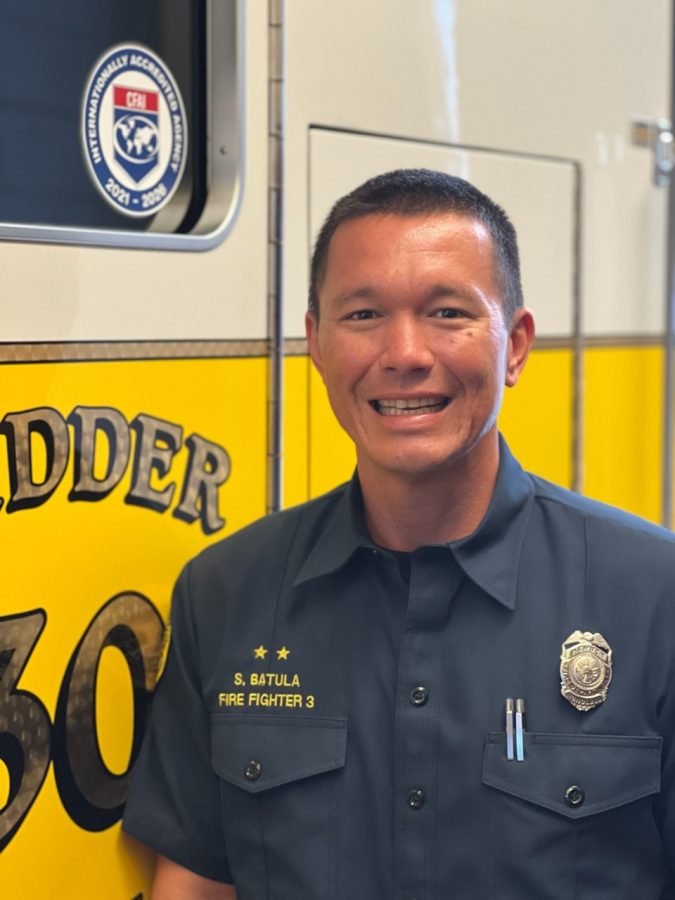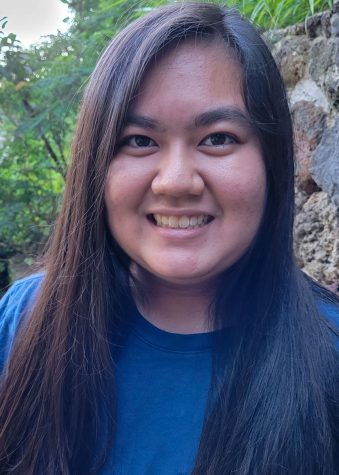Firefighting: more than a job — a life-changing career
Scott Batula stands next to the fire engine.
April 28, 2022
“I love the teamwork and the fact that I was able to come to work every day and give back to my community,” Scott Batula, Firefighter 3 of Moanalua Station 30, says. “It became less about me and more about helping others.”
Scott has worked as a firefighter for 11 years, receiving the rank of Firefighter 3 in 2021.
“Ask any firefighter, it’s the greatest job in the world,” Scott says. “You get to work with a team, you have a pretty good schedule, the compensation is not bad, and every day you get a chance to challenge and better yourself. Not only to become a better version of you but alongside your crew and your other firefighters to be better for your community.”
Scott describes the “unspoken gratitude” of people he’s helping as the best part of the job, second only to giving back to the community.
“He has a lot of care and concern for other people and not just because he has to for his job; because he truly does care,” Lectie Altman, Scott’s fiancée, says. “He cares about every single person he interacts with on a daily basis.”
However, the job isn’t without challenges.
Scott had to complete a grueling six-month training before being hired to a station. On a daily basis, the job is mentally and physically demanding. Scott notes experiencing a lot of events he “can’t unsee” while on duty.
Scott has had to compartmentalize his thinking to be able to do his job to the best of his ability. There were and still are events he claims will stay with him, well into his career, events that change the way he views the world and his everyday interactions with people.
“Even when everything is going wrong, and this is somebody’s worst day, I have to be able to put all emotion aside and still do my job,” Scott says.
In addition to his promotion, Scott’s schedule also changed. Lectie describes his schedule, a nine-day cycle with work every other day for the first five then four days off, as “interesting” and something she had to get used to. She describes learning to understand that while Batula is at work, he is at work.
“I can’t just chat with him at night before I go to bed because he’s at work,” Lectie says. “It’s not a regular job and he can’t just pick up the phone and have a conversation in the middle of his work.”
This work ethic, though, has paid off for Scott because Joan Batula, Scott’s mother, adds that his career has made him a better, more mature person.
“People will entrust their lives to him and know that he will back them up,” Joan says.
Joan comments that Scott’s career will be long ahead of him because of his competency in the job and his drive to give back to the community.
“It’s [firefighting] not for everyone,” Scott warns, “It seems glorifying and gratifying, and all the things people love to see on Chicago Fire and the cool stuff they see us do out in the public, it takes a toll on you physically and mentally. It takes a special type of person, in the end, to be willing to sacrifice yourself to save someone else.”



